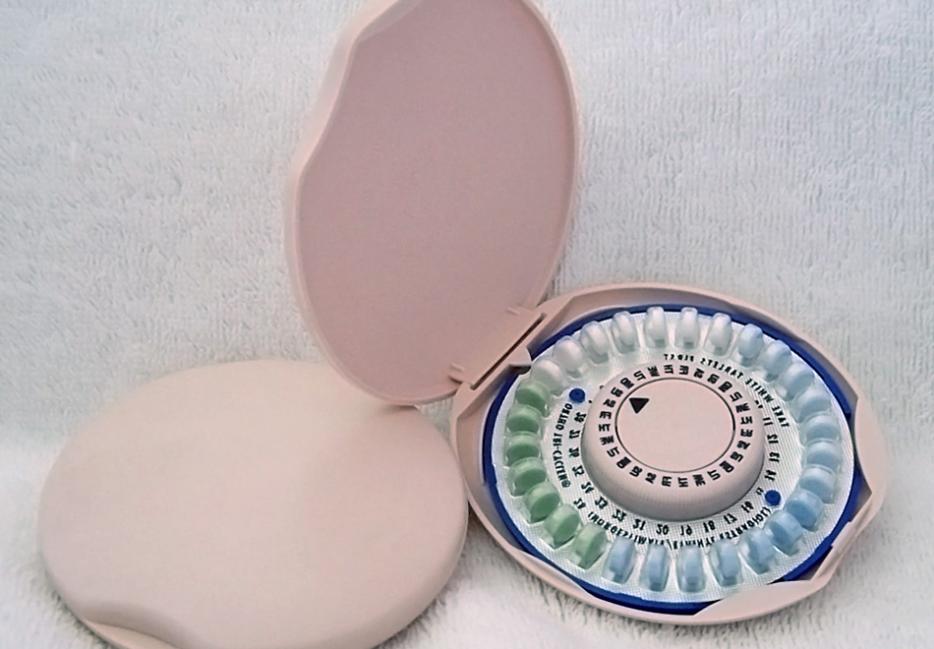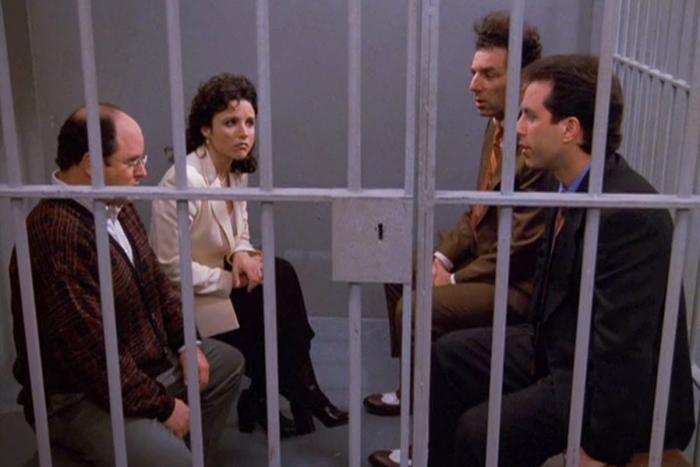I vividly remember this one Alesse commercial from my early teens, long before I had any need for birth control. Four pretty young women with silky hair acted out enviable scenarios: riding motorcycles, fencing, lounging on a pink rotating couch in what looked like a walk-in closet. “I’m on Alesse.” Each breathed the euphonious code word in a different language into a watch, like sexy secret agents. I didn't even know what Alesse was, but, man, it seemed cool.
Now, it all seems decidedly less glamorous.
The worst it got, I think, was when I nearly swerved into a transport truck on the highway. It was a fleeting instinct. I was crying hard and a truck merged into the lane beside me. The idea just popped into my head unannounced, and straightaway, my brain shot the command down to the fingers clenched around the wheel. I didn’t even think—for a split-split-second, I was going to do it. But, just as quickly, the feeling passed and so did the truck. I had been this upset before; I was starting to accept my unpredictable, unexplainable mood swings as a personality trait, but never thought about suicide. I kept driving, startled by what I’d nearly done. Tears blurred the road as I listened to my ragged breath filling up the car.
During the five years I was on Diane-35—an acne therapy drug that’s often prescribed off-label for birth control—I lived through countless mood swings and emotional breakdowns. In my early days on the pill, when I was 16 or 17, it was hard to know what was the drug and what was me. I was always a moody teenager, but hey, who isn’t?
After I outgrew my mercurial teens, however, the moodiness didn’t stop. I’d sink, curl up in bed, and cry for hours. Just thinking about getting through the day was overwhelming. Yet these moods never lasted for longer than that. They were bearable, not in the moment, but at least in the grand scheme of things. I knew this ricocheting wasn’t normal, of course.
I felt like I was mentally ill—that I had a mood disorder or depression. I envisioned either coping with the volatility or turning to anti-depressants. But all along, a small part of me knew the culprit could be the drug I was taking to clear up my skin. Now, having quit taking those little yellow pills, I’m certain they were the cause. I feel cured. I’m in control of my emotions for the first time in a long time.
I’m not alone; anecdotal evidence is plentiful that oral contraceptives can lead to those mood swings and depressive states I knew all too well. Even still, there’s a dearth of concrete research and evidence linking the birth control pill to psychological changes in women. What is the pill actually doing to our brains?
*
When I first talked to my doctor about my moods, she suggested I stop taking Diane-35. In some cases, she said, it was linked to depression. Now, looking at the pamphlet I received with my last prescription, I notice it lists severe depression as a serious adverse effect. I was prescribed Diane-35 six years ago, and although I don’t remember discussing specific risks with my doctor before I went on it, that’s more likely due to the quality of my memory than the level of her competence.
While it seems that women have accepted the pill’s link to moodiness as a truism—check any online discussion board, where depression, mood swings, and anxiety are frequently reported—this relationship remains understudied in the academic world. Oral contraceptives’ physical risks, including deep vein thrombosis (blood clots) and pulmonary embolism, have been well documented in clinical trials and studies and well publicized in the news media. The possible mental effects, however, are only discussed among women, in doctors’ offices, and inconclusively in research papers, if at all. The pill is the most common method of birth control in the U.S., according to 2010 data, and, despite a lack of Canadian statistics, it’s safe to assume it’s a similarly popular method here. Yet investigation into the potential ramifications is sorely needed.
The worst it got, I think, was when I nearly swerved into a transport truck on the highway. It was a fleeting instinct. I was crying hard and a truck merged into the lane beside me.
Alesse, Yaz, and Tri-Cyclen are three of the most recognizable oral-contraceptive brands in Canada, though dozens more are on the market. They all have similar possible physical side effects, and, according to reports produced by these drugs’ manufacturers—Pfizer, Bayer, and Janssen, respectively—about one to three percent of women in clinical trials reported mood swings and depression. Each drug’s information pamphlet warns women with a history of depression to talk to their doctor before taking the pill. In Health Canada’s Vigilance Adverse Reaction Online Database, there is a handful of reports from women who felt depressed, anxious, and moody on these three drugs, as well as on Diane-35. Still, the database is made up of voluntary submissions, so adverse reactions are surely underreported.
“Certainly mood swings are very common among people [on the pill] in that sense that it’s a change to your own personality,” says Wendy Norman, an assistant professor in the University of British Columbia’s department of family practice and a principal investigator for the Contraception Access Research Team at the Women’s Health Research Institute.
Diane-35 differs from Alesse, Yaz, Tri-Cyclen, and other such pills in that it’s approved in Canada for acne therapy and is not supposed to be prescribed for birth control alone. (Designated birth control pills typically improve acne.) According to Health Canada, 35 to 40 percent of the 40,000 women in Canada on Diane-35 take it solely for contraception—I ultimately used it for both. Though I was reluctant to stop taking the drug, at my doctor’s suggestion, I did for a month or two in university to see if my moods would mellow. When I started to break out, I panicked and started popping the daily pills again.
I asked several of my female friends what they use for birth control. Most said Alesse, Yaz, or Tri-Cyclen, and several mentioned it had taken a toll on their psyche in the form of rapid mood swings, depression, and feelings of sadness. One friend says she was “crazy” on Alesse and only used it for a few months because it made her so moody. She then tried Yaz and noticed no side effects, although when she started reading about the risk of blood clots, she stopped taking it. “I don't have enough knowledge about birth control hormones and ingredients to know what is safe, and since they have all been approved, my doctor thinks they are all safe. I feel like I need a birth control specialist,” she says. Another friend who’s on Yaz says when she nears placebo week, her mood drops drastically to the point where she worries she’s depressed.
These personal accounts abound, but they’re not backed by major research, at least not compared to the information available on physical side effects. In Canada, these serious physical side effects have been well documented and discussed. Last summer, CBC News reported that 23 women using Yaz and Yasmin had died, most from blood clots. And last winter, the Toronto Star published a handful of stories about Diane-35’s link to fatal blood clots in 13 young Canadian women, pushing Health Canada to release a drug review summary. The report addressed deep vein thrombosis and pulmonary embolism, but didn’t touch mental effects.
Jayashri Kulkarni, a professor of psychiatry at Monash University in Australia, has published two studies on the topic, in 2005 and 2007, respectively. The first found that women taking oral contraceptives were almost twice as likely to be depressed than women not on the pill. The second came to a similar conclusion: women using the combined contraceptive pill (estrogen and progestin) had more depressive symptoms, measured subjectively and objectively, than women who weren’t using it.
While several recent studies have tentatively drawn a link between psychological changes and the pill, a handful have also concluded that the pill has no effect on women’s moods. (Another, published last fall in the American Journal of Epidemiology, concluded that hormonal contraception may actually reduce depressive symptoms in young women.)
“Depression is the most common reason given for discontinuation of OC [oral contraceptive] use, yet the relationship between the OC and depression remains controversial,” Kulkarni writes in her later study, adding that although depression has been identified as a side effect of the pill since the early 1960s, there are few large studies investigating this link. She explains that part of the reason for this discrepancy in data is the different approaches used to define and measure depression. Some studies examine rates of depression in oral-contraceptive users and non-users, while others use patient-rated scales to measure mood.
In the U.K., public attention focused on mental effects of the pill years ago. Millie Kieve founded Adverse Psychiatric Reactions Information Link (APRIL) after her daughter died from an adverse drug reaction. Kieve gathered reports from more than 100 young women who experienced depression, mood changes, and suicidal thoughts while taking Dianette, the U.K. version of Diane-35. Last fall, the drug was designated a “black triangle” drug, meaning it’s subject to additional monitoring by regulatory bodies across the European Union.
Kieve’s advocacy also pushed Bayer to add a warning to its information pamphlet—in the U.K. only: “Post-marketing reports of severe depression (including very rare reports of suicidal ideation or behaviour) in patients using Dianette have been received. However, a causal relationship between clinical depression and Dianette has not been established.”
*
It’s these disturbing psychological risks that lead some women to swear off estrogen-based methods and consider other options, says Norman, the UBC professor. In her practice, the intrauterine device (IUD) is becoming increasingly popular. “Over the past two years women are coming in saying, ‘Hey, my friend’s got a Mirena [a T-shaped device inserted into the uterus that releases a small amount of levonorgestrel]. It’s working great for her, I’d be really interested,’” she says. “Whereas five or seven years ago, we had never heard that from young women.”
The IUD may be expensive—often between $300 to $500—but it lasts up to five years. It’s also effective: a 2011 report shows that, with typical usage, 0.2 percent of women will get pregnant accidentally in the first year of using the device. (Compare that to the pill, at nine percent. Oral contraceptives may be effective, but user failure is high.) There’s a third type of hormonal contraceptive: a tiny flexible tube called Implanon that’s implanted under the skin on the upper arm and releases the hormone etonogestrel. It’s approved in dozens of countries, but not in Canada.
It’s easy to justify the pill’s usage, especially when it comes to psychological risks. It’ll give us smooth skin, make our breasts go up a size, maybe, and keep us baby-free. Is it so bad that it might make us a little moody?
Then there’s the Contraceptive Choice Project, out of Washington University in Missouri, where doctors provided 10,000 women with education about and access to all methods of birth control at no cost. Seventy-five percent of the women chose the IUD or implant, suggesting that lack of awareness and knowledge is the reason why these options are underused.
With all these barriers—cost, availability, information—it’s not surprising so many women still use oral contraceptives. They’ve been marketed very well. (In Canada, direct-to-consumer advertising of prescription drugs is illegal, but we see it often on U.S. channels, where it’s allowed.) I’m sure most women can remember the first ad they saw for the birth control pill—they’re always ultra-feminine and weirdly seductive, representing women taking control of their own identities and sexual decisions.
It’s easy to justify the pill’s usage, especially when it comes to psychological risks. It’ll give us smooth skin, make our breasts go up a size, maybe, and keep us baby-free. Is it so bad that it might make us a little moody? I wrestled with this for a long time when I was on Diane-35. The peace of mind it granted me—clear skin and pregnancy prevention—seemed like an even trade for control of my emotions. I don’t feel that way anymore.
Seven months have passed since I took my last Diane-35 pill, and I haven’t had one breakdown or unprovoked sob-fest, which seems miraculous. I’ve felt remarkably stable, despite moving twice and adjusting to a new job. The whole experience has turned me off hormonal birth control completely.
I’m so relieved about my newfound stability, I nearly don’t care that I’m breaking out again and my period is out of whack. I loved Diane-35 while I was on it, even though I know now it wreaked havoc on me mentally. That’s the trouble with starting a potentially mood-altering drug in your teen years, when you’re already hormonal and likely moody. You don’t know what’s you—your personality, your mood, your flaws—and what’s the drug.






